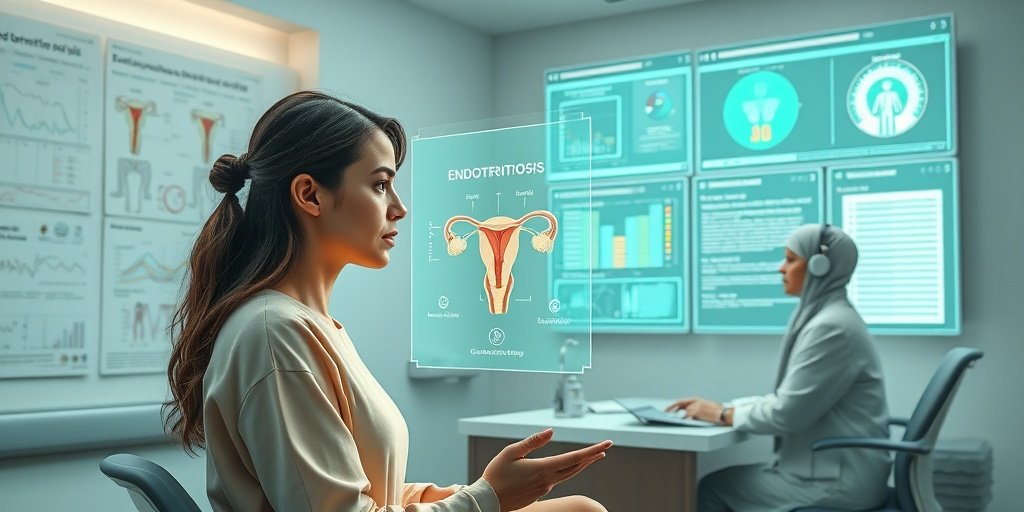⚡ Quick Summary
A recent study evaluated the effectiveness of large language models (LLMs) in answering endometriosis-related queries compared to human specialists. The findings revealed that AI responses were not inferior to those from human experts, with both providing accurate and suitable information for patients.
🔍 Key Details
- 📊 Dataset: 150 anonymized endometriosis Q&As from online forums (2021-2023)
- 🤖 AI Technology: ChatGPT-4o
- 👩⚕️ Human Responses: Provided by human specialists
- 🧑🏫 Review Process: Eight expert reviewers evaluated responses
- 📈 Primary Endpoint: Differentiation between human and AI responses
🔑 Key Takeaways
- 🔍 Significant Differentiation: Reviewers could distinguish between human and AI responses (χ2 = 246.162, p < 0.001).
- ✅ Accuracy Rate: 84.8% of responses were accurate.
- 🛡️ Harmless Information: 87.2% of responses were deemed harmless.
- 👩⚕️ Patient Suitability: 73.8% of responses were suitable for patient communication.
- ⚖️ No Significant Differences: No substantial differences in incorrect information or harm likelihood between AI and human responses.
- 🔄 Slight Interrater Agreement: Only slight agreement among reviewers in distinguishing responses.
- 🌱 Growing AI Role: Patients increasingly seek AI for medical guidance.
- 🔮 Future Research Needed: Further investigation into AI’s risks, benefits, and patient acceptance is essential.

📚 Background
Endometriosis is a complex condition affecting many women, often leading them to seek information online. With the rise of digital health resources, large language models (LLMs) have emerged as potential tools for providing health advice. This study aimed to explore the effectiveness of AI in addressing endometriosis-related queries, comparing it to traditional human expertise.
🗒️ Study
Conducted by a team of researchers, this comparative study analyzed 150 anonymized Q&As from online forums, answered by human specialists, alongside 150 AI-generated responses using ChatGPT-4o. Eight expert reviewers were tasked with evaluating the responses to determine their accuracy, potential harm, and suitability for patient communication.
📈 Results
The study found that while reviewers could significantly differentiate between human and AI responses, the overall accuracy and suitability of the information provided were comparable. The majority of responses were accurate (84.8%), harmless (87.2%), and suitable for patients (73.8%). Notably, there were no significant differences in terms of incorrect information or harm likelihood between the two sources.
🌍 Impact and Implications
The findings of this study suggest that AI can play a valuable role in endometriosis care, offering accurate and safe information to patients. As more individuals turn to AI for medical guidance, it underscores the importance of ensuring that these technologies are well-integrated into healthcare practices. The potential for AI to enhance patient education and support in managing endometriosis is significant, paving the way for future advancements in digital health.
🔮 Conclusion
This study highlights the promising capabilities of AI in providing reliable information on endometriosis. As AI technologies continue to evolve, they may serve as effective tools for patient education and support. Ongoing research is crucial to fully understand the implications of AI in clinical practice and to ensure that it meets the needs of patients effectively.
💬 Your comments
What are your thoughts on the use of AI in healthcare, particularly for conditions like endometriosis? We invite you to share your insights and experiences in the comments below! 💬
Artificial intelligence in endometriosis care: A comparative analysis of large language model and human specialist responses to endometriosis-related queries.
Abstract
INTRODUCTION: Many women with endometriosis turn to digital sources for information. Meanwhile, large language models (LLMs) appear capable of offering health advice. This study aimed to evaluate the potential in answering endometriosis-related queries.
METHOD: This comparative study used 150 anonymized endometriosis Q&As from online forums (2021-2023), answered by human specialists. Another 150 responses were generated using an LLM (ChatGPT-4o). Eight expert reviewers, split into two groups, blindly evaluated either the human or artificial intelligence (AI) response for each question. The primary endpoint was whether responses could be correctly identified as human or AI. Secondary endpoints included incorrect information, harm, and suitability for patient communication.
RESULT: Each reviewer group assessed 600 responses; human and AI responses were differentiated significantly (χ2 = 246.162, p < 0.001, slight interrater agreement). Most responses were accurate (84.8 %), harmless (87.2 %), and patient-suitable (73.8 %). There were no significant differences regarding incorrect information (p = 0.308), harm likelihood (p = 0.944), harm extent (p = 0.892), medical consensus alignment (p = 0.235), or suitability for patients (p = 0.544).
CONCLUSION: This study found that AI was not inferior to human specialists in answering endometriosis-related queries. While reviewers were able to distinguish AI- from human-generated responses significantly, interrater agreement was only slight. No substantial differences were observed in medical content. As AI continues to evolve, patients increasingly turn to it for medical guidance, highlighting the need for greater specialization in endometriosis care. Future research should further investigate the risks, benefits, and patient acceptance of AI in clinical practice.
Author: [‘Burla L’, ‘Metzler JM’, ‘Kalaitzopoulos DR’, ‘Kamm S’, ‘Ormos M’, ‘Passweg D’, ‘Schraag S’, ‘Samartzis EP’, ‘Samartzis N’, ‘Witzel I’, ‘Imesch P’]
Journal: Eur J Obstet Gynecol Reprod Biol
Citation: Burla L, et al. Artificial intelligence in endometriosis care: A comparative analysis of large language model and human specialist responses to endometriosis-related queries. Artificial intelligence in endometriosis care: A comparative analysis of large language model and human specialist responses to endometriosis-related queries. 2025; 313:114625. doi: 10.1016/j.ejogrb.2025.114625